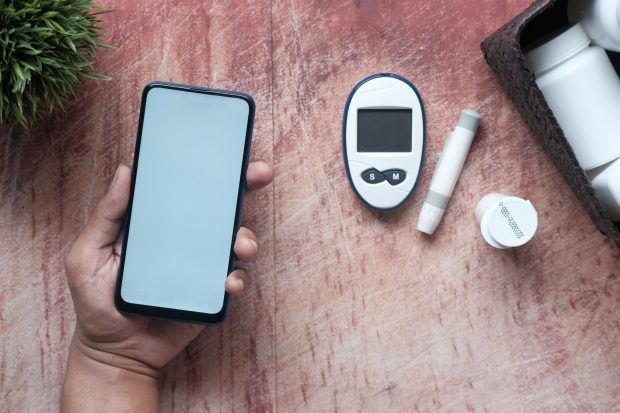According to WHO, around 422 million people are living with diabetes. Both the number of cases and the prevalence of diabetes have been steadily increasing over the past few decades. At least 1, 5 million deaths a year are attributed to the disease. While these statistics are bleak, a diabetes diagnosis does not have to be a death sentence. By adopting healthier habits, anyone can enjoy a good quality of life.
Let’s recap what diabetes means
WHO explains diabetes is a chronic, metabolic disease characterized by elevated levels of blood glucose (or blood sugar), which leads over time to serious damage to the heart, blood vessels, eyes, kidneys, and nerves.
“The most common is type 2 diabetes, usually in adults, which occurs when the body becomes resistant to insulin or doesn’t make enough insulin. Over the past three decades, the prevalence of type 2 diabetes has risen dramatically in countries with all income levels. Type 1 diabetes, once known as juvenile diabetes or insulin-dependent diabetes, is a chronic condition in which the pancreas produces little or no insulin by itself.”

Photo by Towfiqu barbhuiya on Unsplash
Treatment is critical
For people living with diabetes, access to affordable treatment, including insulin, is critical to their survival. Unfortunately, not everyone has access to the best diabetes care. This is why being informed is so important.
Get Tested
Regular testing helps monitor your condition. There are two tests that help to do this;
HbA1c test
- An HbA1c test monitors glucose levels
- A healthy HbA1c reading is 7% (53mmol/mol), but a reading between 7 and 8.5 is acceptable.
- This test should be done at least twice a year.
Serum creatine test
- Diabetes can affect your kidneys, so a serum creatinine test measures kidney function.
- Healthy serum creatinine levels are 60 to 110μmol/L for men and 45 to 90μmol/L for women.
- This test should be done at least once a year.
Lifestyle changes you can make to improve your quality of life
Manage your diet
It’s essential to eat foods that help stabilize blood sugar. Ensure you include whole grains, legumes, nuts, and fatty fish in your daily diet. Green leafy vegetables and fruits (try to eat a serving of 5 fruit and vegetable portions per day) are a great choice.
However, when it comes to fruit, you have to be careful. Fruit must be managed as it contains sugar, so opt for low-sugar fruits like watermelons, avocados, and berries.
Of course, and most importantly, you must avoid processed foods, sweets, alcohol, fruit juices, and fizzy drinks.
Love fruit? This is a diabetes-friendly tip
“Berry consumption, especially the commonly consumed blueberries, cranberries, strawberries and raspberries, may exert unique beneficial effects in diabetes management.” – Calvano, A., 2020
Did you know rooibos tea is really helpful for managing diabetes?
Having a regular cup of rooibos tea will help you manage your diabetes. A review of several studies by Harvard University found that those who regularly drink sugary drinks (one or more cans a day) have a 26% increased risk of type 2 diabetes.
Prof Christo Muller, Chief Specialist Scientist at the SA Medical Research Council (SAMRC) says diabetics should avoid or limit sugary beverages. You easily get more than a meal’s worth of sugar from one drink without even realizing it.
Rooibos for diabetes
“Consuming too many sweetened drinks also results in weight gain, which in turn, increases the likelihood of diabetes. Zero- or low-calorie drinks are typically recommended for diabetics to keep blood sugar in check. This makes Rooibos tea ideal since it’s calorie-free and has a naturally sweet taste, meaning no sweeteners are necessary. Rooibos contains active compounds that can help control blood glucose while lowering inflammation.”
Blood glucose levels
“A unique phenolic compound found only in the Rooibos plant species, called aspalathin, may also help to improve blood glucose levels. Green Rooibos, which is more abundant in aspalathin, is also effective at lowering raised blood glucose levels in animal studies.
In these studies, aspalathin improved insulin activity, the hormone that controls blood sugar levels, by reducing inflammation and oxidative stress, which are both causal factors that underlie the development of type 2 diabetes and cardiovascular disease.”
“Rooibos also protects the heart by suppressing vascular inflammation and atherosclerosis (plaque build-up inside artery walls) that occurs as a result of high blood sugar levels,” Muller explains.
Exercise and diabetes

Photo by Mathilde Langevin on Unsplash
Harvard Health Publishing explains that the general benefits of exercise are undisputed. However, there are added benefits for people living with diabetes.
“Exercise lowers blood glucose levels and boosts your body’s sensitivity to insulin, countering insulin resistance.” – Harvard Health Publishing
Take care of your feet and eyes
Around 50% of people with diabetes suffer from nerve damage, which happens when glucose levels are too high. Nerve damage can affect wound healing and the health of your feet and eyes.
Monitor your foot hygiene regularly, especially if the wound is not healing. Visit a podiatrist to ensure your feet remain healthy. In addition, regular eye tests are essential.
Monitor your medication
Medication helps manage the disease by controlling insulin levels. Set a reminder on your phone to help you take your medication on time as well as pick up your prescription.
4 Point Emergency Incident Checklist
A diabetes emergency can happen at any time. Here’s a practical checklist for needing to help in a diabetes emergency:
- Give them something sweet to eat or drink to help raise their blood sugar. A teaspoon of honey, sweet, or a sip of sweet juice.
- Test their blood sugar levels
- If there is no improvement, give the person another sweet, wait a few minutes, and test again
- If the test shows no improvement, seek medical advice immediately!
References
World Health Organization: https://www.who.int/health-topics/diabetes#tab=tab_3
South African Medical Review Council on Diabetes Care: https://www.samrc.ac.za/
Harvard Health Publishing: https://www.health.harvard.edu/staying-healthy/the-importance-of-exercise-when-you-have-diabetes



 “Berry consumption, especially the commonly consumed blueberries, cranberries, strawberries and raspberries, may exert unique beneficial effects in diabetes management.” – Calvano, A., 2020
“Berry consumption, especially the commonly consumed blueberries, cranberries, strawberries and raspberries, may exert unique beneficial effects in diabetes management.” – Calvano, A., 2020

![women [longevity live]](https://longevitylive.com/wp-content/uploads/2020/01/photo-of-women-walking-down-the-street-1116984-100x100.jpg)










